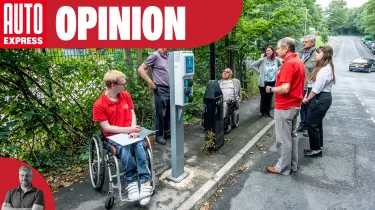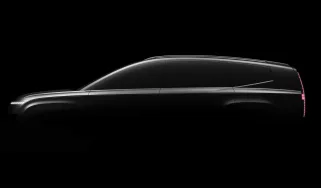The electric car charging network continues to discriminate against disabled people

For a couple of billion dollars, we can launch a rocket into space then snatch parts of it from the air on its way back down. Meanwhile, here in the UK, billions of pounds are being committed to the public charging network, yet we can’t make it accessible for disabled people. Something’s not right.
Two years after the Department for Transport launched the PAS 1899 accessibility standard for public chargepoints, the reality is that little has changed. There have been improvements, which the chargepoint operators are keen to flag, but nationally, the network continues to discriminate horribly against those that struggle to use it.
Despite making all the right noises on accessibility in opposition, the government refuses to be drawn on whether it believes UK Equality Act laws apply to chargepoint operators and providers today. Instead, the DfT, chargepoint operators and other stakeholders have immersed themselves again in the circular debate about the same old challenges the industry and disabled drivers have discussed for years.
Listening to Charge UK’s chief exec Vicky Read talking about the challenges raised in the DfT-sponsored PAS 1899 review group meeting earlier this month, felt like waking up on Groundhog Day. Chargepoint providers decided two years ago that they didn’t like the idea of compliance, and ‘opted out’, for just the reasons the group says it is beginning to investigate now. The review aims to report findings some time next year, after which the government says it will deliberate again on the need for regulation.
It’s time to stop talking. Whatever your politics, it seems evident that leaving chargepoint accessibility to the markets has failed. Commercial operators focused on competing for market share, and their investors focused on returns, do not appear to be a recipe for making accessibility happen.
Kicking the issue into the long grass with another review may suit everyone with a stake in delivering the infrastructure, but it doesn’t work for the 2.7 million disabled drivers the Motability Foundation says will be using UK roads by 2035, potentially half of whom could be reliant on the UK’s public chargepoint network.



